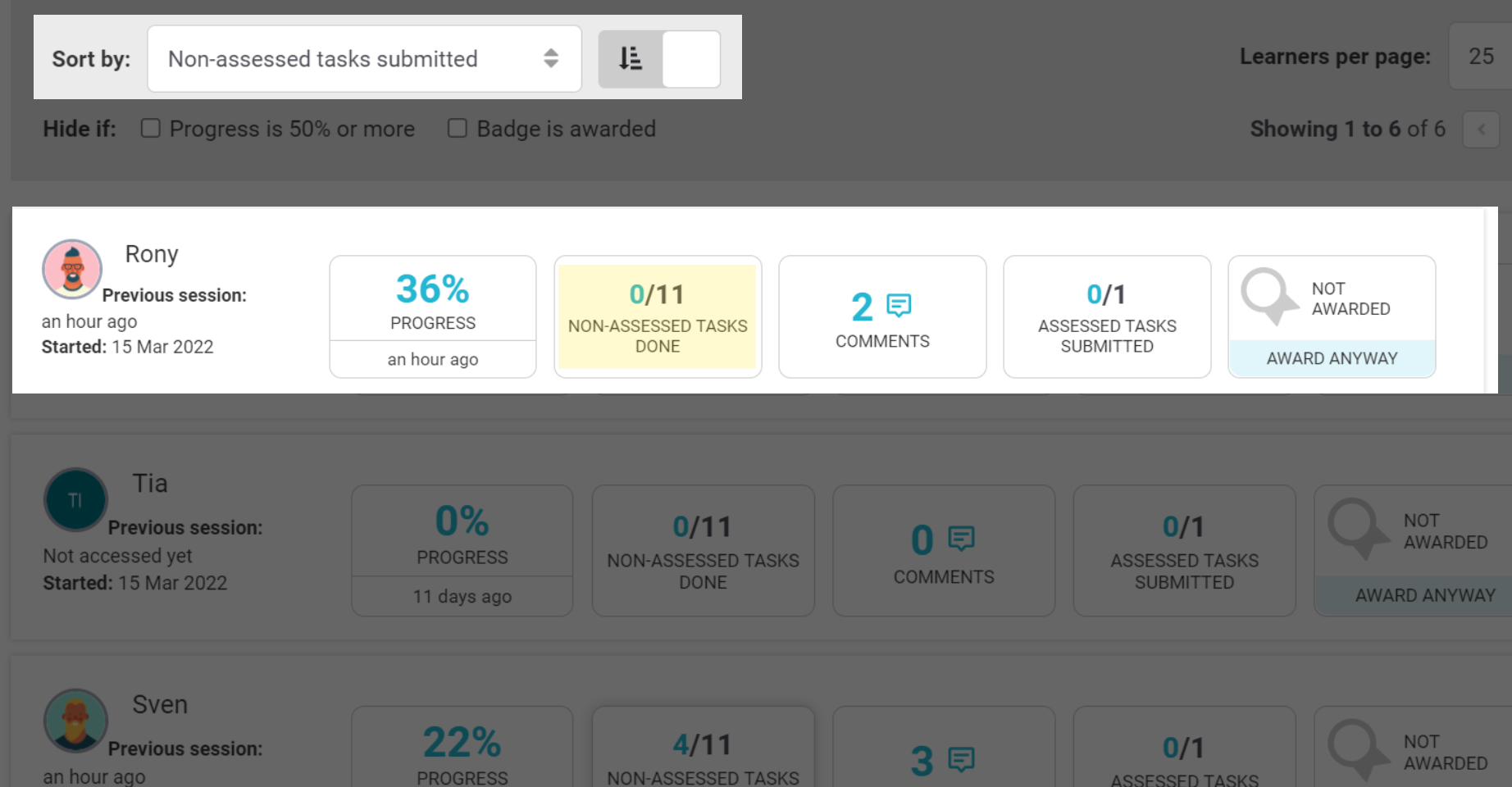Meet Rony.
But how do we know we’ve got a Rushy Rony? And, more importantly, how do we help him?
Spotting Rony in the Class Console
Rony’s been rushing through the pages, but not completing any of the tasks! You can spot Ronys by sorting by non-assessed tasks submitted.

Rony’s progress will also be slightly lower than the class average. This is because if there are tasks on a page, you need to complete all the tasks on a page to get the entire progress increase for that page.
Supporting Rony
Depending on your context, skipping the non-assessed tasks may or may not be a big deal. Rony probably just needs to know what’s in it for him to complete certain tasks.
- Do the tasks clearly lead up to the assessment?
- Do the tasks provide good opportunities for feedback?
- Why is it advantageous for Rony to do these tasks?
Tell Rony what's in it for him
You might tell Rony something like this:
Hi Rony,
I can see you’re making some good progress in the course - well done. What I have noticed though is that you haven’t been completing the tasks along the way.
We include these tasks as a chance to practice what you’re learning. This is beneficial for you in that it can help cement the ideas, and it’s also really useful for me to see how (or if) I can support you.
All of the tasks in the course should make completing the assessment easier as well, so I do encourage you to take another look at the tasks and give them a go.
Show Rony what's in it for him
Better than just telling Rony the tasks are valuable, show him. If you have the opportunity, show Rony how useful it can be to complete non-assessed tasks by giving him personalised, valuable feedback and feedforward on at least one non-assessed task. Make any learning explicit. This way he directly sees the benefit of completing the task. He will also see that you are putting effort into his tasks and so he should as well.
Leveraging Rony’s strengths
Rony seems to get a buzz out of progress and completion. He might be motivated by seeing his tasks list ticked off and progress increasing.
The tasks list also makes it easy for Rony to dive in to the particular pages with tasks rather than having to click through a bunch of pages to find them.

Rony can also serve as a good prompt for you to examine the course design.
- Are all those non-assessed tasks you’ve put in there essential?
- Are they truly useful?
- How exactly do they help learners to achieve the outcomes?
You might well spot some tasks that are unnecessary or could do with a spruce up to help them more clearly connect to the course outcomes.
Rony is just one of the online learner personas we've explored in our series on the six online learners who need your help (now!).


